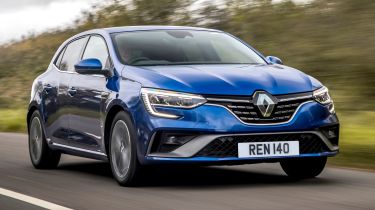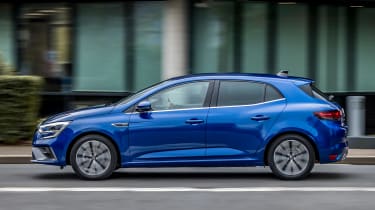Renault Megane (2016-2022) review - MPG, CO2 and running costs
Pick a diesel-powered Megane and you'll benefit from superb fuel economy, although residual values aren't the best

Renault has long prided itself on its economical diesel engines – and the point is proven in the latest Megane. The manufacturer claims the dCi 115 unit, in combination with the seven-speed automatic transmission, will return as much as 62.8mpg on the combined cycle. The six-speed manual version is only a fraction behind this figure at 61.4mpg.
CO2 emissions for both variants are 121-122g/km, which means company car users will pay a 28% Benefit-in Kind rate.
The TCe 140 petrol still offers solid economy with the manual car proving to be the most efficient, returning 48.7mpg versus the auto's 47.9mpg. CO2 emissions are 130g/km and 133g/km respectively, which puts the petrol-powered Megane in the 30% BiK bracket.
Private buyers will be heartened by the brand’s PCP deals, which feature low APR rates and dealer contributions to help get you behind the wheel.
Insurance groups
All Megane diesel versions are in group 18 for insurance, which compares favourably to the SEAT Leon 113bhp 2.0-litre diesel which starts from group 19. If you decide on a petrol-powered Megane then premiums will be a little more expensive, as all sit in group 22 with the exception of the Iconic manual version in group 21.
Depreciation
Residual values are not a strong point for the Megane. After a typical three-year/36,000-mile ownership period, the family hatchback will only be worth around 37% of its original list price. In comparison, a Ford Focus should retain 43% of its value after the same period, while a SEAT Leon performs even better with 46%.









